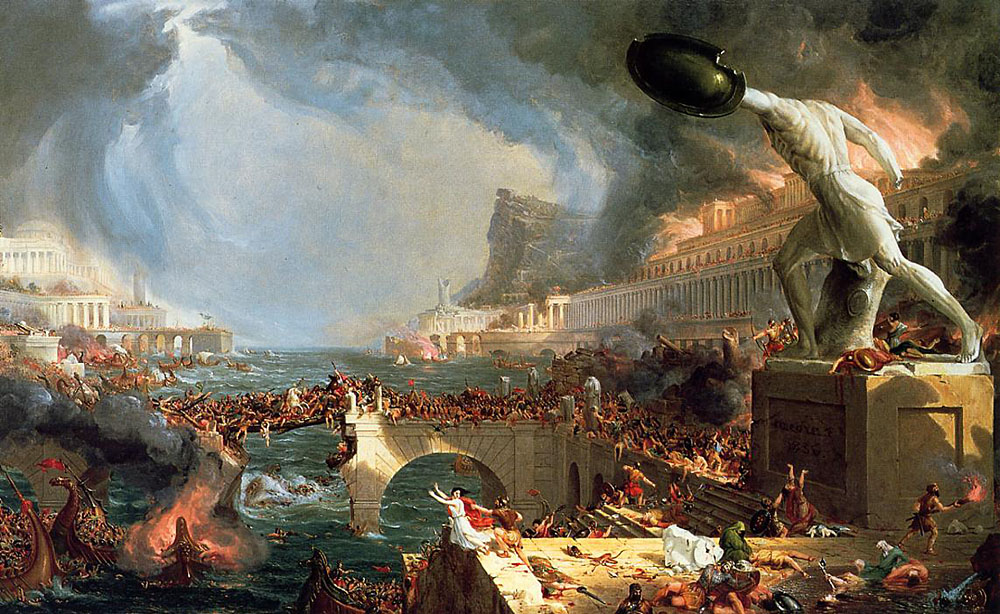Over on NRO, Victor Davis Hansen points to the example of Rome to argue that after the central governing institutions of a civilization have lost their founding virtues, it can be held together for centuries merely by inertia in the outlying institutions and a common popular culture.
DC is no longer serious, just as Rome was no longer serious. But very little of the “Roman empire” was directly governed by Rome; similarly, much of American civilization is surprisingly insulated from the center:
About half of America and many of its institutions operate as they always have. Caltech and MIT are still serious. Neither interjects race, class, and gender studies into its engineering or physics curricula. Most in the IRS, unlike some of their bosses, are not corrupt. For the well driller, the power-plant operator, and the wheat farmer, the lies in Washington are still mostly an abstraction.
Get up at a.m. and you’ll see that your local freeways are jammed with hard-working commuters. They go to work every day, support their families, pay their taxes, and avoid arrest — so that millions of others do not have to do the same. The U.S. military still more closely resembles our heroes from World War II than it resembles the culture of the Kardashians.
To the extent that we need some kind of common language, pop culture may turn out to be surprisingly able to supply it:
Like diverse citizens of imperial Rome, we are united in some fashion by shared popular tastes and mass consumerism. The cell phones and cars of the poor offer more computing power and better transportation than the rich enjoyed just 20 years ago.
Youth of all races and backgrounds in lockstep fiddle with their cell phones as they walk about. Jeans are an unspoken American uniform — both for Wall Street grandees and for the homeless on the sidewalks. Left, right, liberal, conservative, professor, and ditch digger have similar-looking Facebook accounts.
If Rome quieted the people with public spectacles and cheap grain from the provinces, so too Americans of all classes keep glued to favorite video games and reality-TV shows. Fast food is both cheap and tasty. All that for now is preferable to rioting and revolt.
It is not, of course, a happy picture VDH is painting. Because the obvious question (which he does not raise in this column, but given what we know, he must be thinking it) is whether a civilization is even worth saving on these terms. What makes the history of Rome romantic and glorious for so many people is everything it accomplished before the state of corruption in those long, slow later years. Nobody looks back to sixth-century Rome with admiration. So suppose America does last several more centuries – what would it matter?
But of course it is far from clear that we could last that long, because VDH’s comparison is of limited application. History moves a lot faster these days; inertia wears down sooner. And the center has a much, much longer reach than it used to – as all those virtuous tech schools and businesses are going to be finding out in the coming decades.
On the other hand, VDH is giving us space for hope. The collapse of American civilization may not take as long as Rome’s, but it will also not happen overnight. What we need is not an eternal prolonging of the present moment – some sort of indefinite delay of the otherwise inevitable reckoning – but just enough time and space for a real cultural renewal. For real cultural renewals do happen, and that is our hope. What VDH is pointing out is that we may have a long enough runway for it after all.
